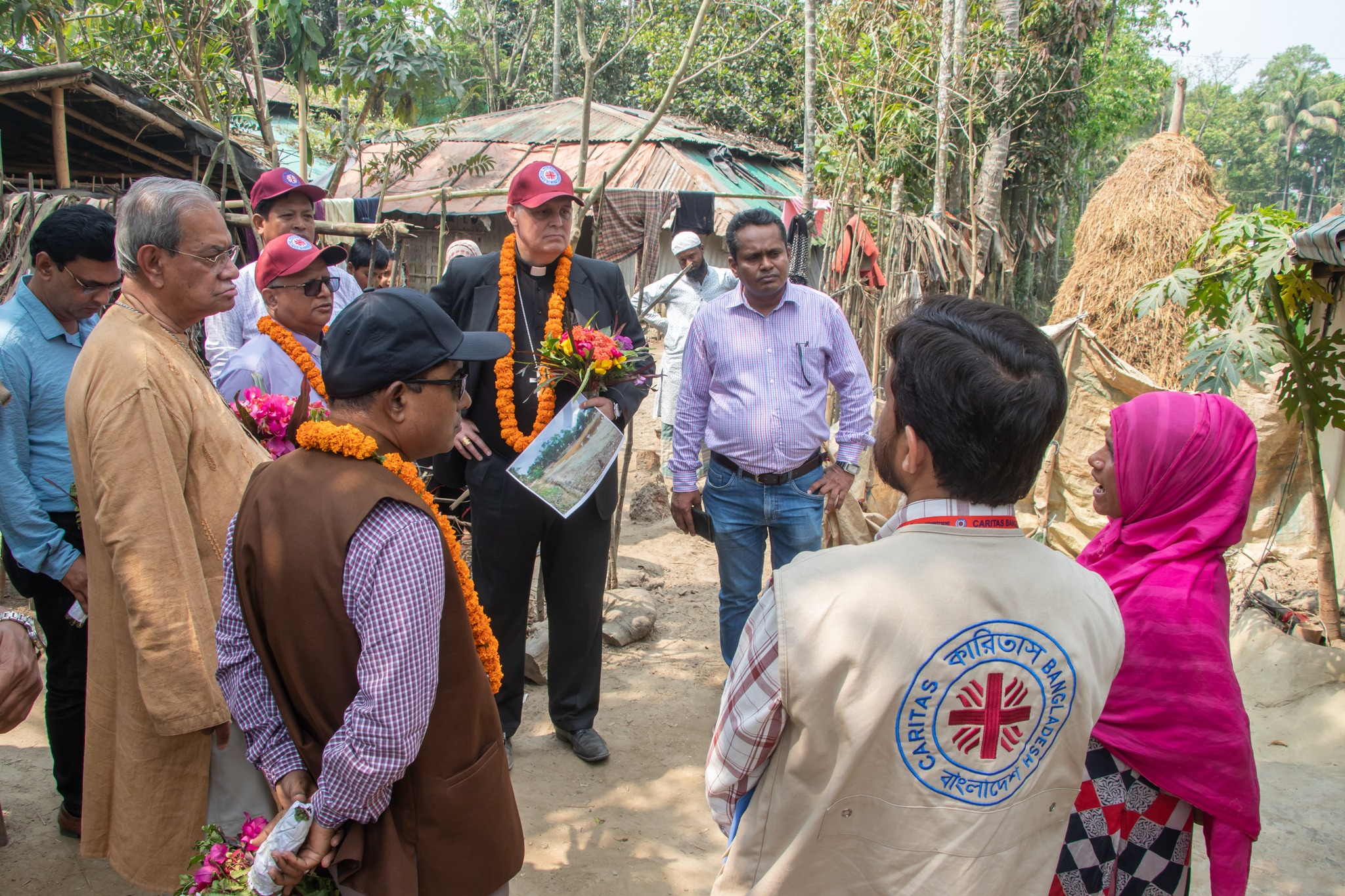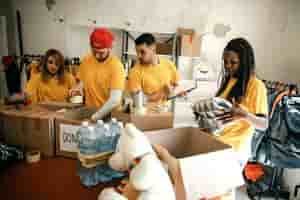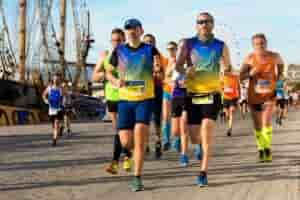IN BANGLADESH: A COMMUNITY-BASED APPROACH TO ADDRESSING A MYRIAD OF NEEDS
Over the past seven years, Bangladesh has been home to the world’s largest refugee settlement. In August 2017, more than 700,000 Rohingya refugees fled Myanmar for neighboring Bangladesh, expanding the refugee population there to nearly 1 million. They fled after decades of discrimination and repression under successive governments in Myanmar’s Rakhine state.
IntFed Bangladesh has been working with fellow Caritas members and closely with the government of Bangladesh, local communities and other partners to provide a range of urgent and long-term assistance, including: food, shelter, water and sanitation services, education, health care, counseling and other services. Caritas support has evolved with the changing context and needs of families—from urgent food, water and shelter to long-term support.
A growing need for Caritas Bangladesh has been to address the emerging mental health issues across families given families’ heightened distress, instability, and lack of certainty and control over what is to become of their lives. Not able to return to their homelands in Myanmar and facing substantial movement restrictions, most Rohingya families are entirely reliant on humanitarian assistance to meet their most basic, everyday needs.
Since 2018, Caritas Bangladesh, with fellow Caritas partners, has supported a range of assistance to address critical needs. One such program is called the Barefoot Counselor Approach which, through trained volunteers, provides individual and group assistance to address issues of early marriage, gender-based violence, need for psychological first aid, and referrals for specialized services. Notably, the Barefoot Counselor volunteers come from the Rohingya refugee community as well as the Bangladeshi host community. Through door-to-door visits, volunteers use the skills they learn in training to actively listen to family members, note potential triggers for violence and communicate with couples to reduce tension in their homes. Some have noticed changes in men’s behavior after a group session or home visit.

“I fled Myanmar and arrived in Bangladesh in 2017, living in challenging circumstances. I was single and struggling to survive. Three years later, my life took a turn as I got married. Family conflicts arose, and when I was seven months pregnant, my husband left me and disappeared from the camp. I had no idea where to turn for assistance and support. I know where to get assistance because of the BFC volunteers,” says Anjona Mariyam Khatun.
Additionally, sessions for teenagers take place with tailored messaging on adolescent safety issues, such as domestic violence and early marriage, are discussed. Psychosocial support and counselling sessions help people to manage their stress, practice new coping skills, identify resources available to assist them, and access a safe space to make informed decisions.
Education projects have assisted children with not only with learning essential knowledge, but building a greater sense of purpose and achievement. Given the limitations of movement, access is key—and Caritas has established learning centers in key areas of camps. Caritas has also distributed a books, pens, pencils, bags and other supplies. The education centers support both academic and recreational activities to strengthen life skills.
“I am aware of the challenges we face as refugees. Given this situation, I desire for my son to acquire at least some knowledge that will enrich his future and make our lives more beautiful,” says Rokeya Begum.
“As parents, we haven’t had the opportunity to receive an education, but my intention is to ensure my daughter’s education. This way, she can become good, informed individual when we will return to our home country. She will be able to read signboards, identify locations, and understand the history of their nation,” says Sifamoni.
“When my mother enrolled me in the Caritas Learning Center, I couldn’t read, write, or even say my parents’ names. However, within six months, I learned the Burmese and English alphabets, and could articulate the names of my mother, father, and sisters. I could also write in both Burmese and English alphabets. By the ninth month, I was proficient enough to write my own name, along with my parents’ names, block number, and country name. Additionally, I learned to recite poems and the Myanmar national anthem,” shared Rahim Halim.
In other programs targeting adolescents and youth, young Rohingya community members can take part in programs that strengthen their life-skills and livelihood opportunities.
“In ‘Clean the Camp’ session I have since made it a habit to keep myself clean and encourage others to do the same. ‘Introduction to Embroidery’ was particularly important to me, as it sparked my interest in the activity. I realized that mastering this skill could not only provide me with income but also enable me to teach other girls or women. ‘English for Everyday Life’ was one of the most important courses for me. Through it, I learned to write my name, as well as those of my family members. I also learned the names of fruits and how to identify colors,” says Nur Aisha, who expressed her aspirations to learn computer skills to enhance her opportunities for the future.
Caritas Bangladesh’s community-based approach continues to promote positive behavior, access to specialized services, and empowerment for women to take on more leadership roles. Integrating these initiatives will enable more comprehensive protection assistance to the most vulnerable.
“I see the light of hope,” says Abdul Abdullah.
IntFed Bangladesh has been continuously responding to the emergency needs, through food distributions, shelter construction, settlement planning and upgrading, water, sanitation and hygiene, community-based protection for families and children, education in emergency, livelihoods and skills development.



